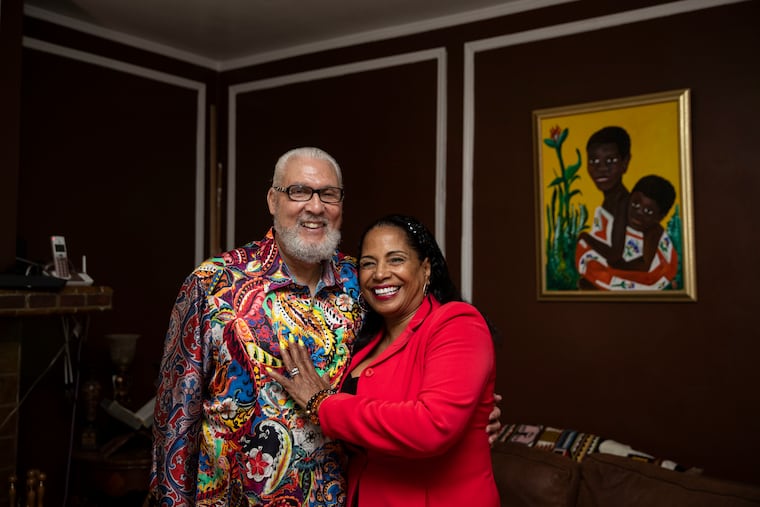Too many black babies are born out of wedlock. An antiviolence activist wants to change that. | Jenice Armstrong
Bilal Quayyum, founder of the Father’s Day Rally Committee, believes that creating strong, stable families in which to raise kids is key to stemming the city’s virulent gun violence epidemic. So, he's hosting an event Friday to help popularize the concept of getting married.

Just about every idea I ever had about marriage came from seeing my parents interact during the 53 years they were married.
They were best friends and soul mates who met at a school dance on the campus of North Carolina Central University and married shortly after. Growing up, I watched them work through all kinds of problems that came with raising five kids. They loved each other through it all no matter what.
And while my husband and I haven’t had nearly the challenges that they experienced, we will celebrate our 15th wedding anniversary this summer.
So, yeah, marriage is a big deal to me.
That’s why my ears perked up when one of the city’s leading antiviolence activists told me he’s starting a new crusade to promote the institution.
Bilal Qayyum, who founded the Father’s Day Rally Committee 31 years ago to celebrate black fatherhood, believes that creating strong, stable families in which to raise kids is key to stemming the city’s virulent gun-violence epidemic.
So, this Friday beginning at 6 p.m., Qayyum will host a gathering that he’s billing as a Black Marriage Day Vow Renewal Reception at the Belmont Mansion. During the event, married couples will recite their wedding vows en masse. Imam Umar B. Salahuddin of Bitul Baitul mosque and the Rev. Ernest C. Morris Sr., founder of Mount Airy Church of God in Christ will officiate. The event, which costs $50 a couple, is scheduled to roughly coincide with Black Marriage Day on March 22. That’s a national effort created in 2003 by Nisa I. Muhammad.
“When I grew up in West Philly, 80% or more families were together — mom and pop in the household,” he told me recently. "We had problems then, but we were taking care of each other and we had strong communities.
“Now that that has broken down, that’s why we see all of this craziness. That’s why you’ve got fools running around shooting pregnant women,” he added, referring to the senseless killing of Ishan Charmidah Rahman, a pregnant mother of five gunned down Feb. 21.
What we need, he insists, is a return to traditional values.
“If we have strong families, we can eliminate a lot of this madness that we are seeing in the community,” said Qayyum, who each week counsels incarcerated youngsters at the Juvenile Justice Services Center.
“We look at the statistics now, the national statistics in the black community, 70% of our children are growing up in households without a mom and pop,” Qayyum added. “That’s where we’ve got to begin the work to change this around."
» READ MORE: Caught on video: Teens behaving badly. Their parents are partly to blame | Jenice Armstrong
Although it’s true that most black babies are born out of wedlock, that statistic is somewhat misleading. It implies that a father is absent when in some cases a couple might be unmarried but cohabitating. It also presumes that a single father isn’t active in a child’s life.
Studies show that babies born to unmarried parents don’t fare as well. Children who grow up without a father living in the home are more likely to struggle in school, have behavioral problems, and engage in criminal behavior.
“In families where there are intact couples, you see less violence,” Muhammad told me. “The family is where children learn peace. They learn how to resolve conflict. Children can see their parents argue and fuss and kiss and make up. They learn that everything is not resolved with a beef and a gun. They learn that people can kiss, fuss and fight, and make up, and nobody has to fight, and it doesn’t have to end in violence.”
That’s certainly a lesson I learned as a youngster in my own home.
Sharmain Matlock-Turner, president of the Urban Coalition, is among those who plan to participate Friday. She told me, “I hope that this is the beginning of something and not the end of something.”
Considering Qayyum’s track record, it will be.